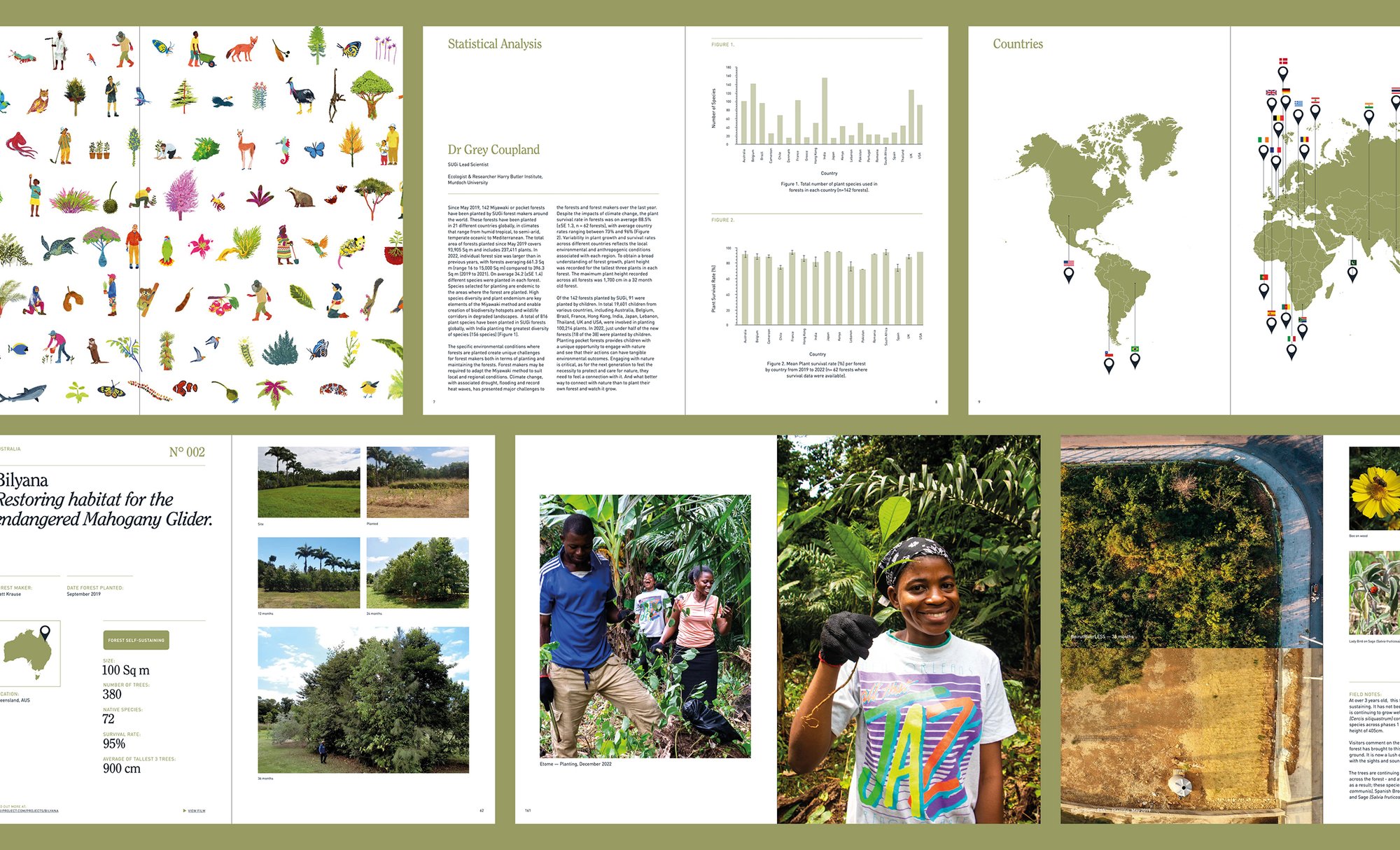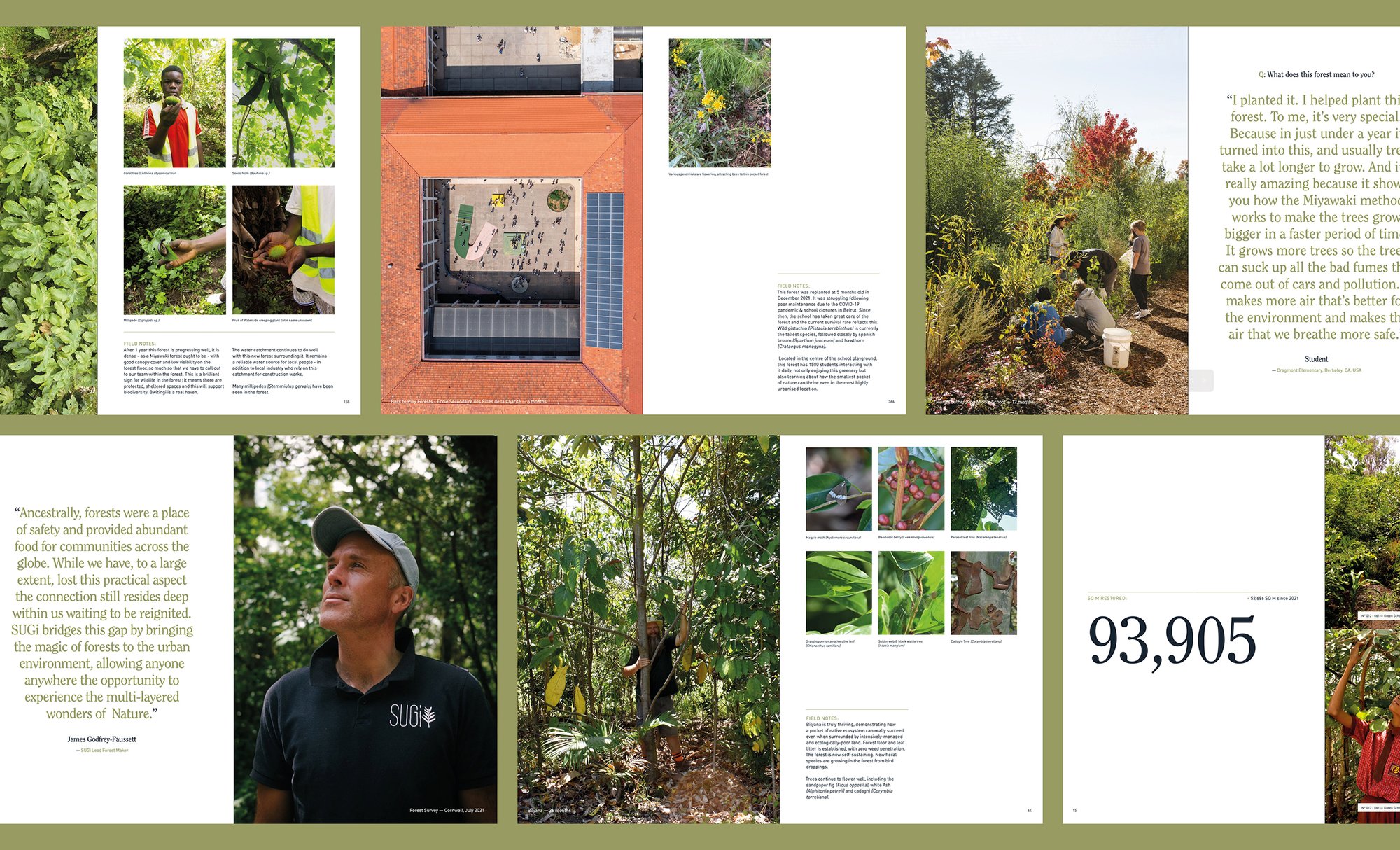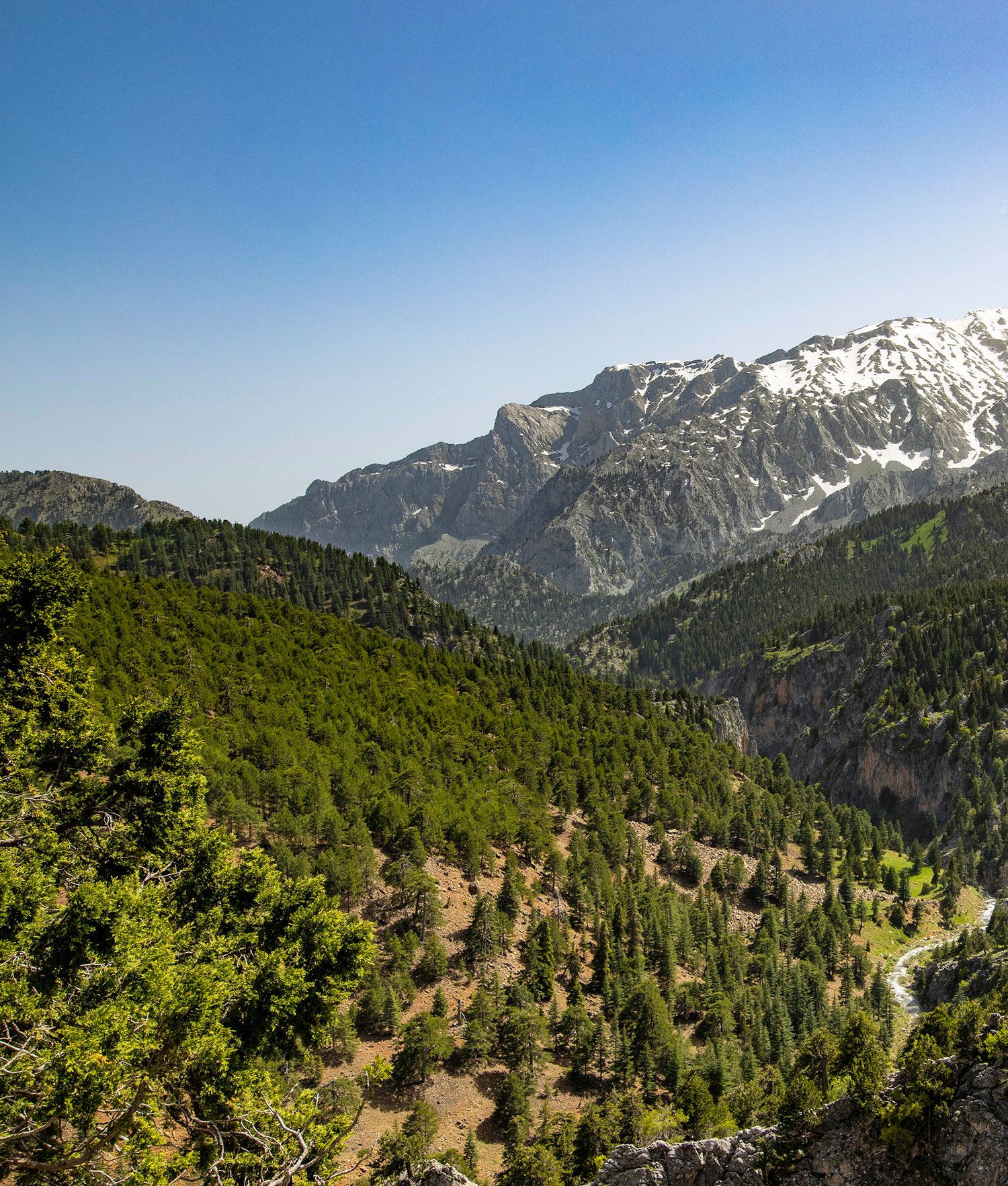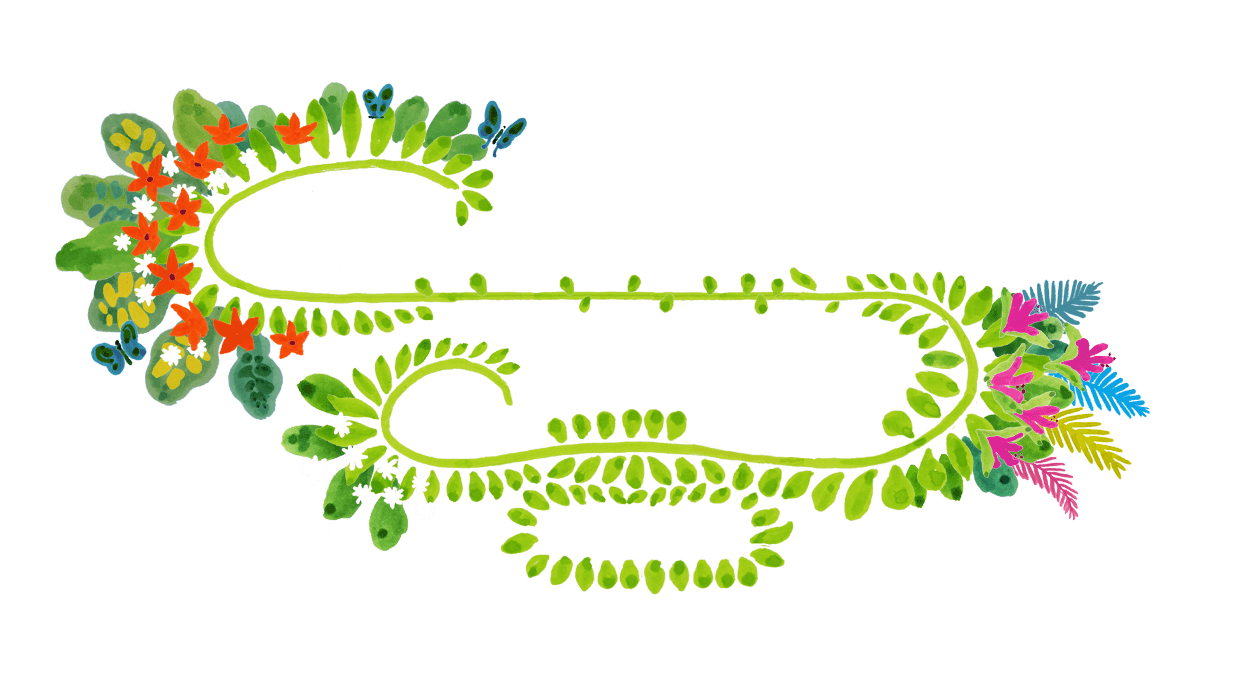
Insight
SUGi Impact Report — 2022
Since May 2019, 142 Miyawaki or pocket forests have been planted by SUGi forest makers around the world. These forests have been planted in 21 different countries globally, in climates that range from humid tropical, to semi-arid, temperate oceanic to Mediterranean. The total area of forests planted since May 2019 covers 93,905 Sq m and includes 237,411 plants. In 2022, individual forest size was larger than in previous years, with forests averaging 661.3 Sq m (range 16 to 15,000 Sq m) compared to 396.3 Sq m (2019 to 2021). On average 34.2 (±SE 1.4) different species were planted in each forest. Species selected for planting are endemic to the areas where the forest are planted. High species diversity and plant endemism are key elements of the Miyawaki method and enable creation of biodiversity hotspots and wildlife corridors in degraded landscapes. A total of 816 plant species have been planted in SUGi forests globally, with India planting the greatest diversity of species (156 species) (Figure 1).

The specific environmental conditions where forests are planted create unique challenges for forest makers both in terms of planting and maintaining the forests. Forest makers may be required to adapt the Miyawaki method to suit local and regional conditions. Climate change, with associated drought, flooding and record heat waves, has presented major challenges to the forests and forest makers over the last year. Despite the impacts of climate change, the plant survival rate in forests was on average 88.5% (±SE 1.3, n = 62 forests), with average country rates ranging between 73% and 96% (Figure 2). Variability in plant growth and survival rates across different countries reflects the local environmental and anthropogenic conditions associated with each region. To obtain a broad understanding of forest growth, plant height was recorded for the tallest three plants in each forest. The maximum plant height recorded across all forests was 1,700 cm in a 32 month old forest.

Of the 142 forests planted by SUGi, 91 were planted by children. In total 19,601 children from various countries, including Australia, Belgium, Brazil, France, Hong Kong, India, Japan, Lebanon, Thailand, UK and USA, were involved in planting 100,214 plants. In 2022, just under half of the new forests (18 of the 38) were planted by children. Planting pocket forests provides children with a unique opportunity to engage with nature and see that their actions can have tangible environmental outcomes. Engaging with nature is critical, as for the next generation to feel the necessity to protect and care for nature, they need to feel a connection with it. And what better way to connect with nature than to plant their own forest and watch it grow.





